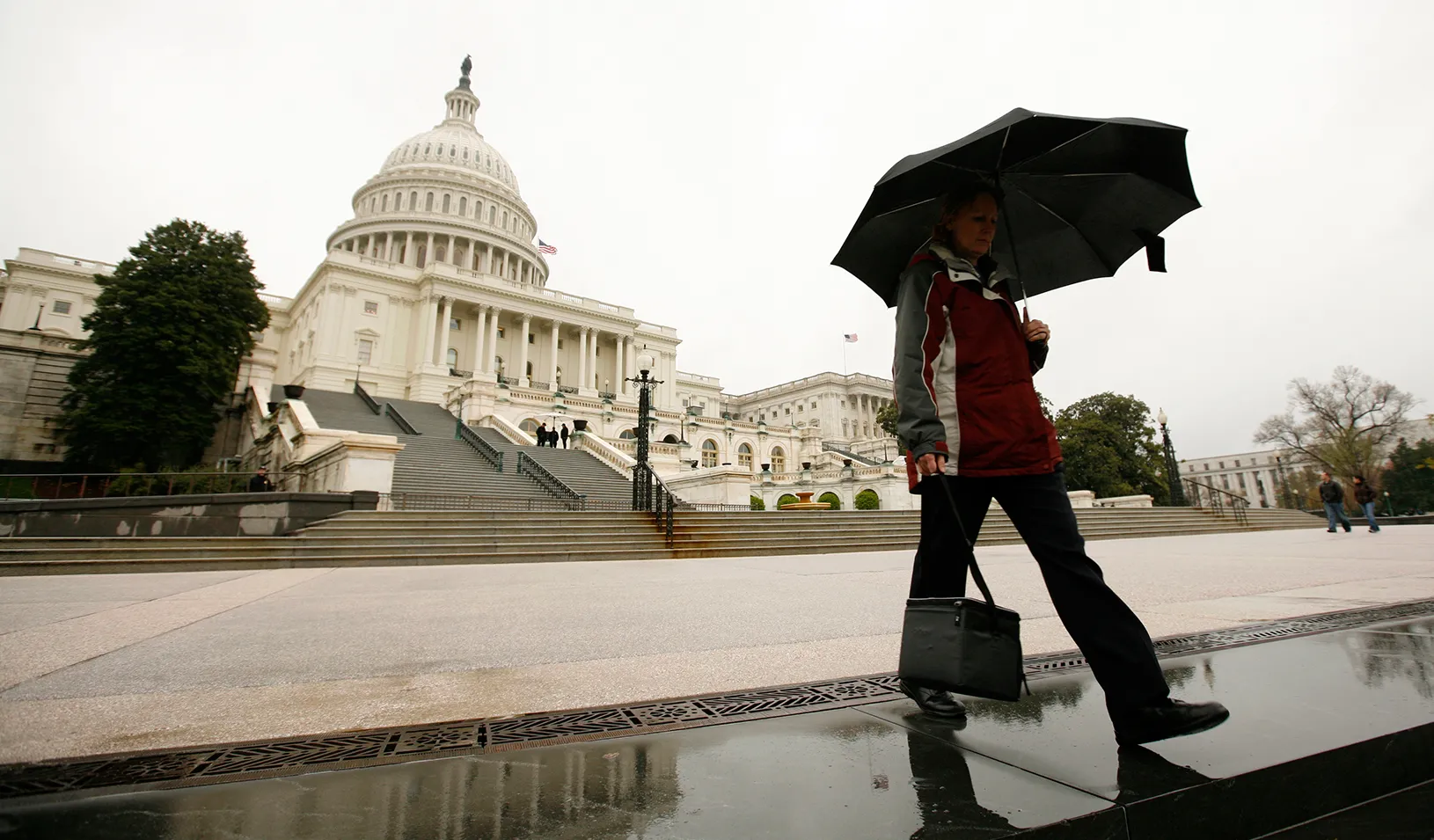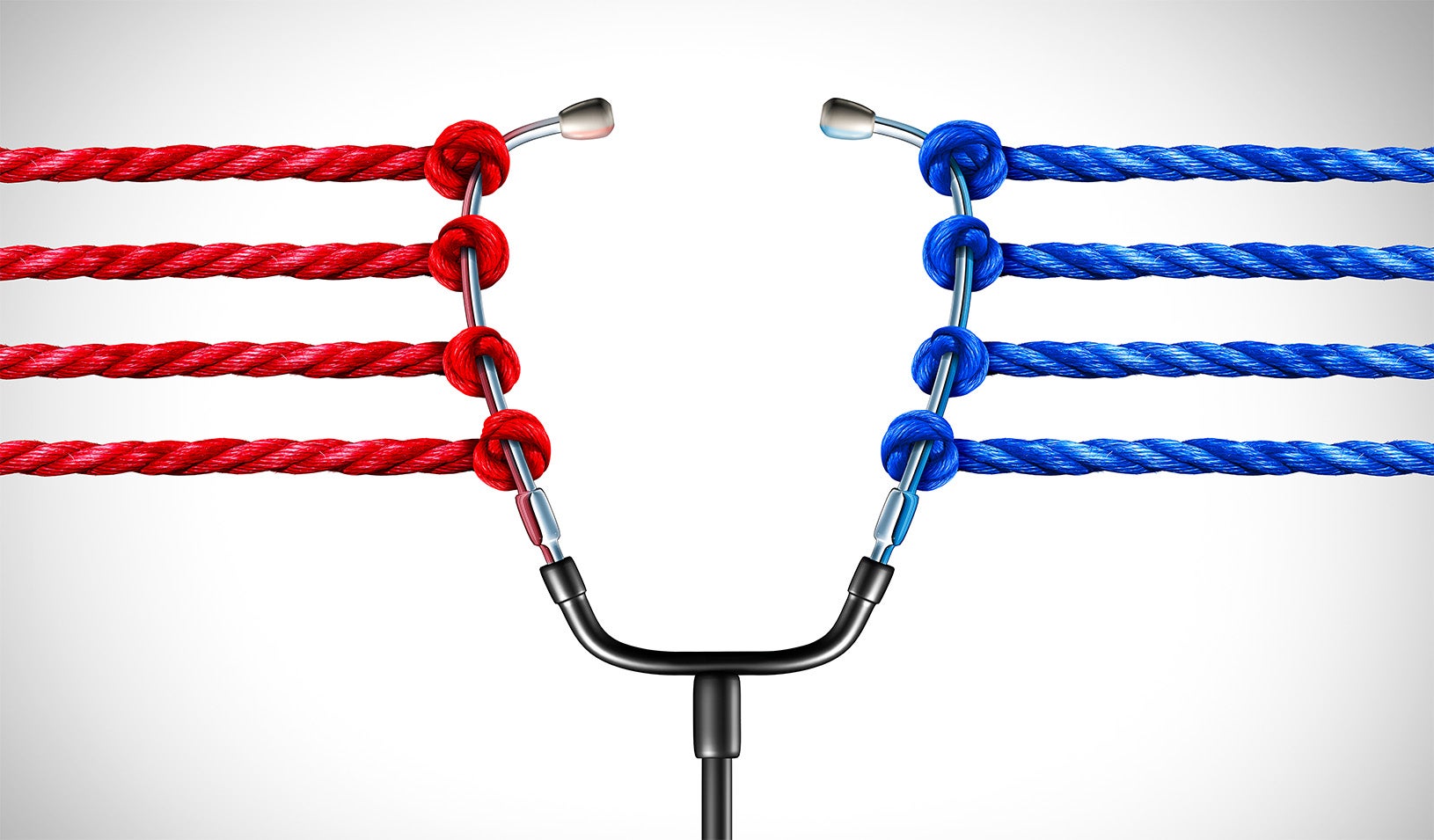January 12, 2015
| by Edmund L. AndrewsA new Congress is settling into Capitol Hill, representing a major shift in the political makeup of the legislative branch and highlighting Americans’ frustration with politicians and the political process. In polls, more than half of Americans disapproved of President Obama and about 80% disapproved of Congress. Americans are angry about partisan gridlock, but they also harbor mistrust about nonpartisan bureaucrats.
Steven Callander and Keith Krehbiel, professors of political economy at Stanford Graduate School of Business, see it differently.
In a recent paper, they apply game theory to understanding U.S.-style gridlock. Their conclusion: Two of the system’s most unpopular features — supermajority voting (as in the Senate filibuster) and delegation of authority to “unelected bureaucrats” — can together produce good outcomes.
Callander, born and raised in Australia, argues that the U.S. system is shrewder than most Americans give it credit for. Here, he answers questions in an interview edited for length and clarity.
Haven’t filibusters and other forms of supermajority voting been the main reason for paralysis in Washington?
A good way to think about it is that the U.S. system, from the Founders onward, was designed to not do very much. The basis of the separation of powers itself was designed to restrain the ambitions of the individual actors. It’s a system that avoids a lot of bad things from happening because no individual has enough power to make big changes. The downside is that a lot of good things are also prevented from happening.
At the same time, we delegate a lot of authority to agencies of unelected officials. That doesn’t seem very democratic either. But there is a logic to this design, a logic to why elected politicians, who want to do things that voters want and get re-elected, might want to delegate authority.
We show that the delegation of authority has evolved over time to solve the challenge of “political drift.”
What is political drift, and how does it relate to this?
Political drift is simply a feature of the world: The world is changing, so the effectiveness of policies today will change tomorrow. One example is the tax break for “carried interest,” which was originally created to help small business people and real estate developers. But it has ended up serving the private equity industry and allows some of the nation’s most highly paid executives to avoid paying the normal tax rate. That’s an example of the world changing: The rise of the private equity industry has led to unintended consequences for this tax policy that are very different from what lawmakers originally had in mind.
Why does it help to delegate authority to unelected bureaucrats?
Politicians have an incentive to smooth the outcome of policies over time to avoid unintended consequences when the world changes — they recognize that political drift may well cause the same law to produce very different results in the future. So while politicians today might disagree about whether the top tax rate should be 39% or 33%, they can agree on wanting to smooth the impact of taxes over time as the economy rises and falls.
Enforcing this kind of deal is very difficult for politicians on their own. They are not allowed to write contracts, and they are not allowed to bind the hands of future Congresses. They can’t tell the senators in five years’ time what they have to do.
Delegating authority to an agency, a group of bureaucrats, creates a way [to adjust policy in response to change so that the results still reflect the politicians’ original goals].
In our view of delegation, Congress is not abdicating its authority to unelected bureaucrats who can then run amok. The idea is that these people can implement policy in a way to keep getting the results that Congress projected or estimated that it wants. As a result, delegation allows elected leaders to strike deals that they would otherwise not strike.
If the system is so well designed, why are Americans so frustrated?
Regardless of what kind of system you have, there is going to be frustration. Politics is about disagreements, and these disagreements exist everywhere. They exist in the U.S., they exist in Australia. They exist in Europe and Latin America.
The U.S. system has got more separation of powers and more gridlock than any other system, so it’s natural that people are frustrated — more than frustrated. But the system itself can evolve and develop. Members of these institutions have come up with new systems, new instruments like the delegation of authority. When problems arise, we now have a self-correcting mechanism to overcome a limitation of the separation of powers system. This is something the Founders never anticipated, and it has helped.
So your message to Americans is that things aren’t as bad as they seem?
Yes. We understand the system doesn’t work perfectly, but we are saying that delegation can make things better by solving some of the problems caused by gridlock.
Would the nation have been better off if it had not developed this combination of political gridlock and delegation to independent agencies?
It’s hard to tell, but we can say that the U.S. has turned out very well. This country is very rich, very prosperous and healthy. Things have worked out very well with this separation of powers and this system that does not do very much.
Should political reformers take your findings as a reason for caution?
Obviously, there are reform efforts, and we would like to help. But it’s hard to reform a system if you don’t understand how it works. There is no end of well-intentioned reformers around the world who have changed political systems in the hope of getting better outcomes, but who, because of the curse of unintended consequences, produced outcomes that were worse than what they had before.
We’re not saying that reform might not improve things. But it’s important to understand why the system works the way it does. It’s not as bad as it seems.
Steven Callander is a professor of political economy at Stanford Graduate School of Business. Keith Krehbiel is the Edward B. Rust Professor of Political Science at Stanford Graduate School of Business.
For media inquiries, visit the Newsroom.






